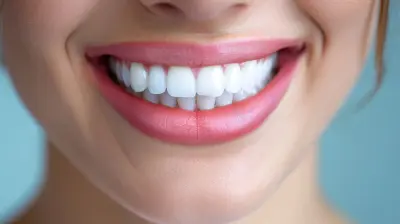Sunlight and Immunity: The Role of Vitamin D
2 July 2025
Let’s face it—there’s something magical about basking in the warmth of the sun. It lifts our mood, gives us that sun-kissed glow, and sparks memories of beach days and picnics. But did you know the sun also plays a vital role in keeping your immune system in check? Yep, it’s not just about getting a tan. That golden ball in the sky helps your body make a crucial vitamin—vitamin D—and this sunshine vitamin has a big say in how well your immune system performs.
In this article, we’ll peel back the layers of the sunlight-immunity connection, dive deep into how vitamin D influences immunity, and answer the burning question: are you getting enough sun for optimal health?
What Is Vitamin D, Really?
So, what exactly is vitamin D? Technically, it’s a fat-soluble vitamin, but here’s the kicker—it acts more like a hormone than a typical vitamin. Your body can actually manufacture it, but only when you're exposed to—you guessed it—sunlight, particularly UVB rays.There are two main types of vitamin D:
- Vitamin D2 (ergocalciferol) – found in plants and fortified foods
- Vitamin D3 (cholecalciferol) – produced in your skin in response to sunlight and also found in animal-based foods
D3 is the more potent and effective version when it comes to raising vitamin D levels in your blood.
How Does the Body Make Vitamin D From Sunlight?
Think of your skin like a solar panel. When UVB rays hit your skin, they convert a cholesterol-related compound in the skin into vitamin D3. From there, it undergoes a couple of transformations in your liver and kidneys to become biologically active.Here’s a quick breakdown:
1. UVB rays strike the skin.
2. 7-dehydrocholesterol in the skin converts to previtamin D3.
3. Previtamin D3 becomes vitamin D3 (cholecalciferol).
4. The liver converts D3 to 25(OH)D (calcidiol).
5. The kidneys change it to 1,25(OH)₂D (calcitriol) — the active form.
Sounds like a mouthful? Put simply, your body is a vitamin D factory; it just needs the sun to flip the switch.
Vitamin D and the Immune System: A Strong Connection
Let’s talk immunity. Your body’s immune system is its personal bodyguard. It fights off viruses, bacteria, and all the microscopic bad guys trying to make you sick. But even the best bodyguard needs the right tools, and vitamin D is one of them.Here’s how it helps:
1. Enhances Innate Immunity
Your innate immune system is like your first line of defense. It acts fast but nonspecifically. Vitamin D supports this arm of immunity by:- Boosting the production of antimicrobial peptides like cathelicidin
- Enhancing the function of white blood cells (e.g., macrophages and monocytes)
These peptides are like your immune system’s secret weapons—small but powerful in killing pathogens.
2. Modulates Adaptive Immunity
This side of your immune system is more targeted. It remembers invaders and attacks them efficiently. Vitamin D can influence adaptive immunity by:- Regulating T-cell responses to avoid excessive inflammation
- Encouraging the development of T-regulatory cells that calm down the immune response
So in a nutshell, vitamin D makes sure your immune system is doing its job without going into overdrive, which can be just as damaging.
The Link Between Vitamin D Deficiency and Illness
Here’s where it gets concerning: a huge number of people worldwide are deficient in vitamin D. And it's not just a minor inconvenience—it can seriously affect immune function.Studies Show:
- People with low vitamin D levels are more prone to respiratory infections, like colds and flu.- Deficiency is linked to autoimmune diseases like MS, lupus, and rheumatoid arthritis.
- Severe COVID-19 cases have been associated with lower vitamin D levels, though research is still ongoing.
Coincidence? Probably not.
Why So Many of Us Are Running Low on Vitamin D
You’d think with all the sunshine out there, vitamin D deficiency wouldn’t be a thing, right? Wrong. A modern lifestyle keeps us indoors more than ever. Add sunscreen (essential for skin cancer prevention, but it blocks UVB), long winters, and geographic location, and it’s easy to see why deficiency is common.Risk Factors Include:
- Living far from the equator- Having darker skin (more melanin = less vitamin D synthesis)
- Being overweight or obese
- Aging (reduced skin ability to produce vitamin D)
- Chronic kidney or liver disease
So unless you're living on a tropical island and spending a good chunk of your day outside, you might not be getting enough.
How Much Sunlight Do You Actually Need?
That depends on your skin tone, where you live, and the time of year. Generally, around 10 to 30 minutes of midday sun exposure on your face, arms, and legs a few times a week is enough for most people to maintain healthy vitamin D levels.But remember—there's a fine line between getting enough sun and overdoing it. Too much sun exposure raises the risk of skin cancer. So, it’s all about balance.
Can You Get Vitamin D from Food?
Absolutely, though diet alone usually isn’t enough to cover your needs. Still, every bit helps.Foods that Contain Vitamin D:
- Fatty fish (like salmon, mackerel, and sardines)- Cod liver oil
- Fortified foods (like milk, cereal, and orange juice)
- Egg yolks
- Beef liver
But unless you’re eating these foods daily, you might still fall short—especially if you’re avoiding the sun.
Should You Take a Vitamin D Supplement?
Let’s be honest: supplements can be a game-changer, especially in winter or if you're low to begin with.Before reaching for a bottle, it’s a good idea to get your levels tested. The most accurate marker is 25(OH)D (calcidiol) in your blood.
General Supplement Guidelines:
- Most adults need around 600–800 IU (International Units) per day- Some experts recommend higher doses, especially in deficiency cases
- The safe upper intake level is around 4,000 IU/day, but always check with a healthcare provider
Taking too much isn’t smart either—too much vitamin D can cause calcium buildup in your blood, leading to nausea, kidney issues, and more.
Sunlight, Vitamin D, and Mental Health — A Bonus Boost
Here’s a cool bonus: sunlight doesn’t just help your immune system. It also boosts mood by increasing serotonin levels, and vitamin D itself has been linked to lower rates of depression and anxiety.Ever notice how winter blues or seasonal affective disorder (SAD) seem to hit when the days get shorter and darker? That’s not a coincidence. Your immune system and mental health are deeply connected, and vitamin D plays a central role in keeping both in tip-top shape.
Myths About Sunlight and Vitamin D — Let’s Set the Record Straight
There are a lot of myths floating around. Let’s clear a few up:- “I get enough vitamin D through windows.” Nah, UVB can’t penetrate glass. You need direct sun exposure.
- “I’m fine because I spend weekends outside.” Unfortunately, it’s not enough if you’re indoors the rest of the week.
- “I take a multivitamin with vitamin D, so I’m good.” Many multis don’t contain enough vitamin D to raise deficient levels.
So check your lifestyle and habits honestly to assess where you stand.
Simple Tips to Keep Your Vitamin D (And Immunity) in Check
Here’s the bottom line: you don’t need to bake in the sun or choke down fish oil daily to support your immune system. Small, consistent actions go a long way.Try This:
- Aim for short periods of sun exposure—without sunscreen—during peak times (usually midday)- Eat a vitamin-D-rich diet
- Consider a supplement, especially in winter months or if you're at risk for deficiency
- Get your levels tested once or twice a year
Your immune system will thank you—and honestly, so will your mood, bones, and energy levels.
Final Thoughts: Embrace the Light
In a world where we're constantly bombarded with health advice, the power of something as simple as sunlight often gets overlooked. But when it comes to boosting your immunity, regulating your mood, and maintaining your health, vitamin D is the real MVP—and sunlight is its ultimate source.So get outside when you can. Feel the sun on your face. Take a walk. Sip tea in your backyard. Your body (and probably your brain) will reward you.
Just don’t forget the sunscreen after your D-session is over
all images in this post were generated using AI tools
Category:
Healthy Immune SystemAuthor:

Jackson Mahoney
Discussion
rate this article
1 comments
Bennett Stone
Understanding the link between sunlight, Vitamin D, and immunity is crucial. Regular sun exposure can boost your immune system and overall health.
July 16, 2025 at 4:22 AM

Jackson Mahoney
Thank you! You're absolutely right—regular sun exposure is key for boosting Vitamin D levels, which play a vital role in strengthening our immune system and enhancing overall health.


